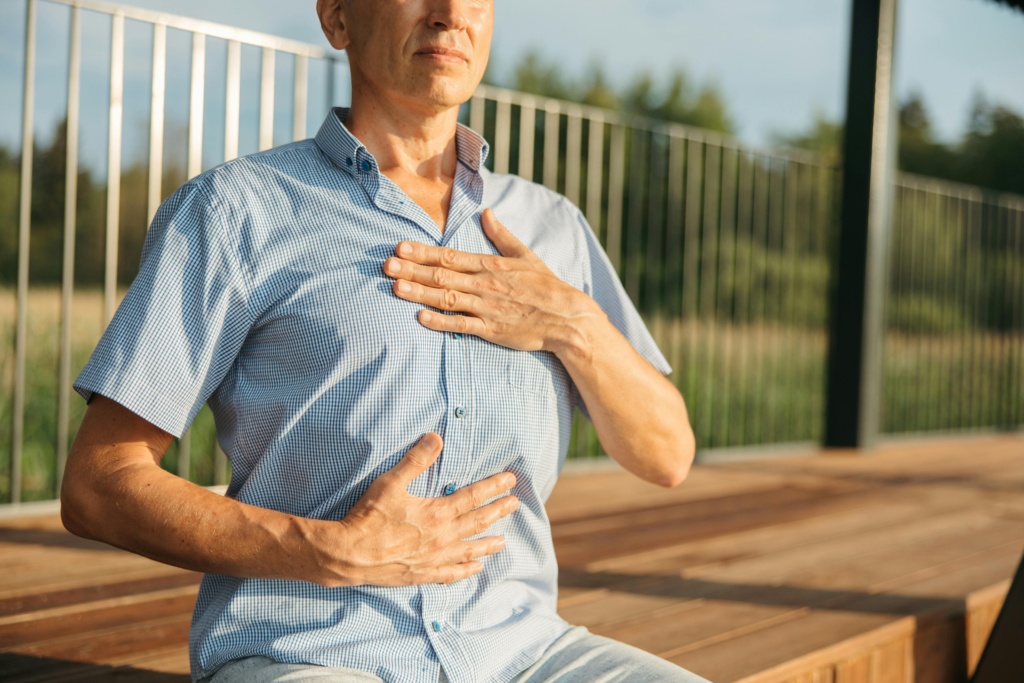By Cynthia Germain
Meditation isn’t just something reserved for yoga studios. It’s a simple, steady practice that helps calm the mind and bring a little more ease into everyday life. And for older adults, meditation can be an especially powerful tool for navigating change, staying connected, and finding gratitude in the ordinary moments.
Recently, I sat down with Debra Fitzgerald, Editor and Podcaster for the Door County Pulse, and touched on this very thing while discussing aging in Door County and the impact Do Good Door County has had in our community. During that conversation, she shared a piece of her own meditation practice that really piqued my interest. Each day, she recites, among others, two statements: “I will grow old” and “I will die.” Debra admitted it might sound morbid but explained how those truths have helped her talk more openly about aging, feel more grounded, and be more grateful.
And “more” is exactly what meditation brings…more of the good stuff. Many older adults have busy schedules and complex emotions. Doctor visits, caregiving, community involvement, family commitments, and the simple work of managing a household. Meditation offers a small pause. It simply steadies, bringing an attitude of gratefulness. It also gives a way to have a friendlier relationship with your body. Instead of fighting every ache and pain, meditation can help you meet your physical self with curiosity rather than frustration.

Meditation is not fancy poses and just a few minutes a day makes a difference. Here are some ways to do it:
- Chair meditation. Sit comfortably, feet on the floor, and follow the inhale and exhale for a few minutes.
- Walking meditation. To the mailbox, down the hallway, through the backyard. Notice each step.
- Body scan. From toes to head, lean into each part of the body without judgment.
- A one-minute gratitude pause. Name three very specific things from your day.
If you have never done meditation, try them all out over a week like this:
- Days 1–2: Two minutes of slow breathing
- Days 3–4: Add the grounding statements
- Day 5: Body scan before bed
- Day 6: Walking meditation
- Day 7: Three gratitude moments
Then pick the one that felt the most natural and return to it.
If they resonate, weave Debra’s grounding statements into your own practice: “I will grow old.” “I will die.” And perhaps add a statement that makes even more sense to you, like “I will be grateful for today.”
A note for caregivers. Meditation can even be a shared practice. Sit together for two minutes. Match your breathing. Read a short article and pause between lines. No special equipment needed. Just be present.
A meditation practice does take time to develop and there are lots of tools – books, phone apps, YouTube videos, etc., that can help. Check it out on your phone, on your tablet, or at the library. I often say that aging is not about growing old, it’s about living. And if living can come with more clarity, calm and connection, that’s all the better.

